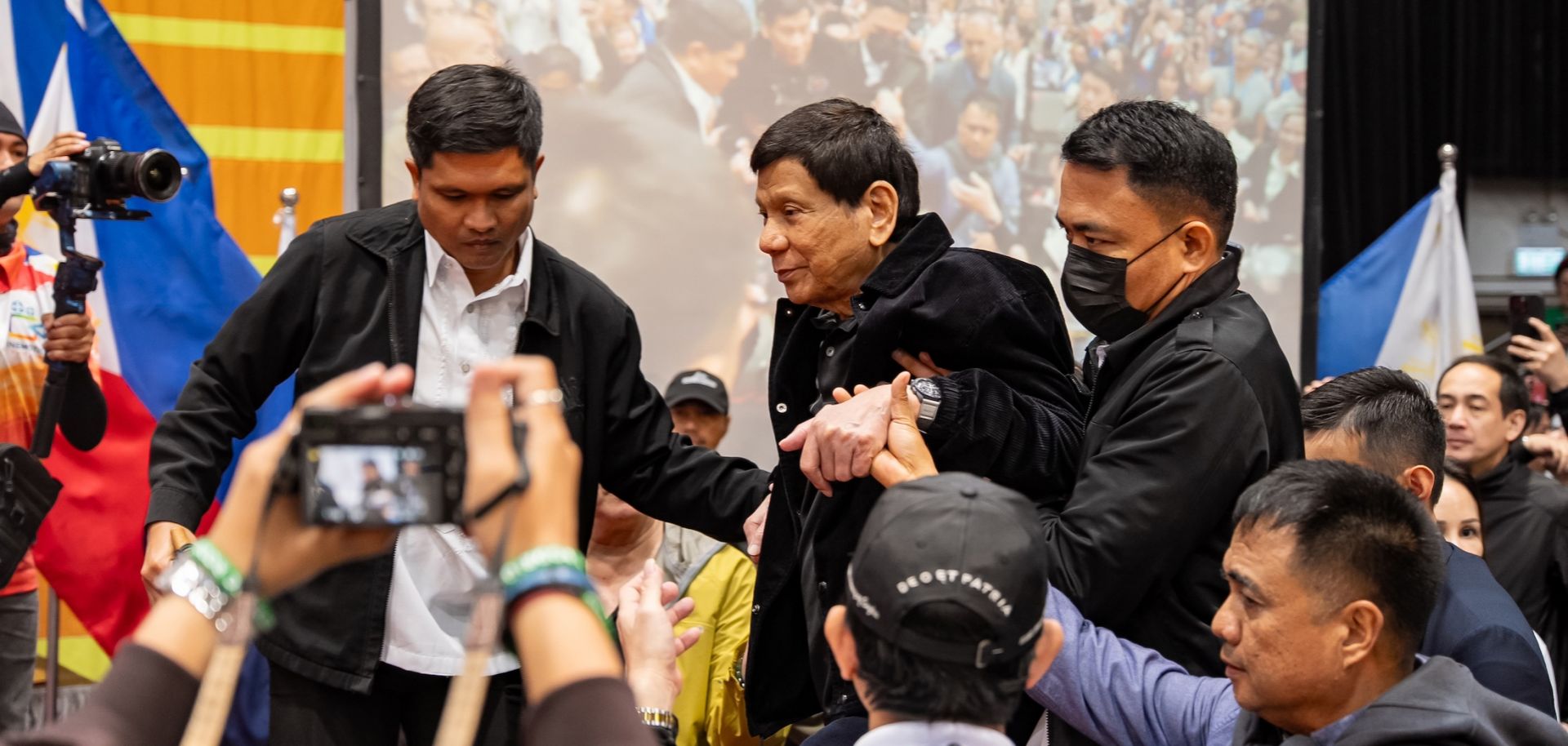The high-profile arrest of former Philippine President Rodrigo Duterte risks factionalizing Philippine institutions and altering the landscape around the country's May midterm elections, which will help determine whether the current administration's defense and foreign policy agenda continues or stalls. On March 11, Duterte was arrested on an International Criminal Court (ICC) warrant accusing him of crimes against humanity related to the deadly anti-drug campaigns he oversaw as mayor of Davao City and later as president of the Philippines. He was apprehended at Manila's Ninoy Aquino International Airport after returning from Hong Kong, and was then extradited to The Hague in the Netherlands, where he is currently detained at the ICC detention center awaiting trial proceedings that could last several years and ultimately result in a prison sentence of up to 30 years. Duterte's anti-drug crackdowns, which began in 2016, officially led to approximately 6,000 fatalities, though some human rights groups...

